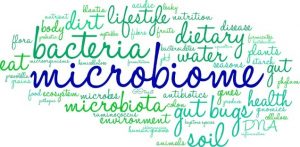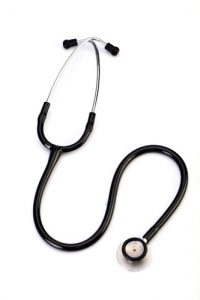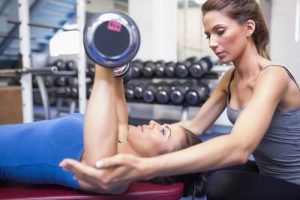Microbiome Mysteries
Author: Dr. Stephen Chaney
 In a recent post, What is Your Microbiome and Why is it Important, of “Health Tips From The Professor” I outlined how our microbiome, especially the bacteria that reside in our intestine, influences our health. That influence can be either good or bad depending on which species of bacteria populate our gut. I also discussed how the species of bacteria that populate our gut are influenced by what we eat and, in turn, influence how the foods we eat are metabolized.
In a recent post, What is Your Microbiome and Why is it Important, of “Health Tips From The Professor” I outlined how our microbiome, especially the bacteria that reside in our intestine, influences our health. That influence can be either good or bad depending on which species of bacteria populate our gut. I also discussed how the species of bacteria that populate our gut are influenced by what we eat and, in turn, influence how the foods we eat are metabolized.
I shared that there is an association between obesity and the species of bacteria that inhabit our gut. At present, this is a “chicken and egg” conundrum. We don’t know whether obesity influences the species of bacteria that inhabit our gut, or whether certain species of gut bacteria cause us to become obese.
Previous studies have shown that there is also an association between exercise and the species of bacteria that inhabit our gut. In particular, exercise is associated with an increase in bacteria that metabolize fiber in our diets to short chain fatty acids such as butyrate. That is potentially important because butyrate is a primary food source for intestinal mucosal cells (the cells that line the intestine). Butyrate helps those cells maintain the integrity of the gut barrier (which helps prevent things like leaky gut syndrome). It also has an anti-inflammatory effect on the immune cells that reside in the gut.
However, associations don’t prove cause and effect. We don’t know whether the differences in gut bacteria were caused by differences in diet or leanness in populations who exercised regularly and those who did not. This is what the present study (JM Allen et al, Medicine & Science In Sports & Exercise, 50: 747-757, 2018 ) was designed to clarify. Is our microbiome affected by exercise?
How Was The Study Designed?
 This study was performed at the University of Illinois. Thirty-two previously sedentary subjects (average age = 28) were recruited for the study. Twenty of them were women and 12 were men. Prior to starting the study, the participants filled out a 7-day dietary record. They were asked to follow the same diet throughout the 12-week study. In addition, a dietitian designed a 3-day food menu based on their 7-day recall for the participants to follow prior to each fecal collection to determine species of gut bacteria.
This study was performed at the University of Illinois. Thirty-two previously sedentary subjects (average age = 28) were recruited for the study. Twenty of them were women and 12 were men. Prior to starting the study, the participants filled out a 7-day dietary record. They were asked to follow the same diet throughout the 12-week study. In addition, a dietitian designed a 3-day food menu based on their 7-day recall for the participants to follow prior to each fecal collection to determine species of gut bacteria.
The study included a two-week baseline when their baseline gut bacteria population was measured, and participants were tested for fitness. This was followed by a 6-week exercise intervention consisting of three supervised 30 to 60-minute moderate to vigorous exercise sessions per week. The exercise was adapted to the participant’s initial fitness level, and both the intensity and duration of exercise increased over the 6-week exercise intervention. Following the exercise intervention, all participants were instructed to maintain their diet and refrain from exercise for another 6 weeks. This was referred to as the “washout period.”
VO2max (a measure of fitness) was determined at baseline and at the end of the exercise intervention. Stool samples for determination of gut bacteria and concentrations of short-chain fatty acids were taken at baseline, at the end of the exercise intervention, and again after the washout period.
In short, this study divided participants into lean and obese categories and held diet constant. The only variable was the exercise component.
Is Our Microbiome Affected By Exercise?
 The results of the study were as follows:
The results of the study were as follows:
- Fitness, as assessed by VO2max, increased for all the participants, and the increase in fitness was comparable for both lean and obese subjects.
- Exercise induced a change in the population of gut bacteria, and the change was comparable in lean and obese subjects.
- Exercise increased fecal concentrations of butyrate and other short-chain fatty acids in the lean subjects, but not in obese subjects.
- The exercise-induced changes in gut bacteria and short-chain fatty acid production were largely reversed once exercise training ceased.
The authors concluded: “These findings suggest that exercise training induces compositional and functional changes in the human gut microbiota that are dependent on obesity status, independent of diet, and contingent on the sustainment of exercise.” [Note: To be clear, the exercise-induced changes in both gut bacteria and short-chain fatty acid production were independent of diet and contingent on the sustainment of exercise. However, only the production of short-chain fatty acids was dependent on obesity status.]
What Does This Study Mean For You?
 There are two important take home lessons from this study.
There are two important take home lessons from this study.
- With respect to our gut bacteria, I have consistently told you that microbiome research is an emerging science. This is a small study, so you should regard it as the beginning of our understanding of the effect of exercise on our microbiome rather than conclusive by itself. It is consistent with previous studies showing an association between exercise and a potentially beneficial shift in the population of gut bacteria.
The strength of the study is that it shows that exercise-induced changes in beneficial gut bacteria are probably independent of diet. However, it is the first study to look at the interaction between obesity, exercise and gut bacteria, so I would interpret those results with caution until they have been replicated in subsequent studies.
- With respect to exercise, this may be yet another reason to add regular physical activity to your healthy lifestyle program. We already know that exercise is important for cardiovascular health. We also know that exercise increases lean muscle mass which increases metabolic rate and helps prevent obesity. There is also excellent evidence that exercise improves mood and helps prevent cognitive decline as we age.
Exercise is also associated with decreased risk of colon cancer and irritable bowel disease. This effect of exercise has not received much attention because the mechanism of this effect is unclear. This study shows that exercise increases the fecal concentrations of butyrate and other short-chain fatty acids. Perhaps, this provides the mechanism for the interaction between exercise and intestinal health.
The Bottom Line
A recent study has reported that:
- Exercise induces a change in the population of gut bacteria, and the change was comparable in lean and obese subjects.
- Exercise causes an increase in the number of gut bacteria that produce butyrate and other short-chain fatty acids that are beneficial for gut health.
- These effects are independent of diet, but do not appear to be independent of obesity because they were seen in lean subjects but not in obese subjects.
- The exercise-induced changes in gut bacteria and short-chain fatty acid production are largely reversed once exercise training ceases.
The authors concluded: “These findings suggest that exercise training induces compositional and functional changes in the human gut microbiota that are dependent on obesity status, independent on diet, and contingent on the sustainment of exercise.”
For more details and my interpretation of the data, read the article above.
These statements have not been evaluated by the Food and Drug Administration. This information is not intended to diagnose, treat, cure or prevent any disease.
